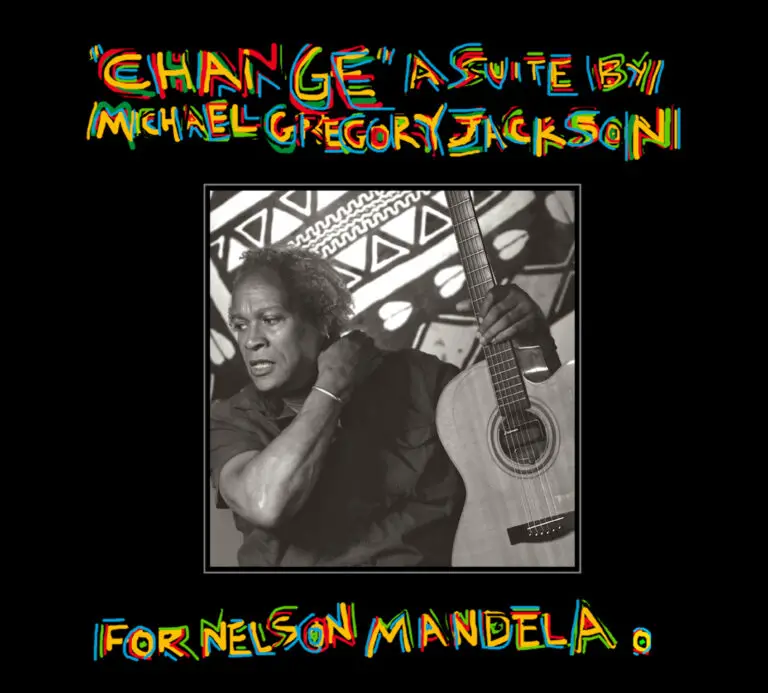Pat Metheny, Bill Frisell, Vernon Reid, Marc Ribot and Mary Halvorsen. One look at the list of progressive jazz guitar all-stars who have named Michael Gregory Jackson as an influence demonstrates the continued resonance and relevance of his four-decades of exceptionally creative music-making.
Jackson was barely out of his teens when he came to prominence in the adventurous New York City Loft Jazz scene of the 1970s, first with The Oliver Lake Quartet then his own edge-pushing solo albums like “Clarity” and “Gifts.” Over the years, he has crafted a continually evolving, uniquely genre-skipping discography, with a cliché-free musical architecture that is all his own. Jackson has explored everything from the furthest out in free jazz to the Stevie Wonder-inspired R&B popcraft of 80’s releases like the Nile Rodgers-produced “Situation X.” Then there’s the bare-bones singer-songwriter with guitar chops acousticity of his small label CDs of the 90s and early 00s like “The Way We Used to Do” and “Red,” two recent albums he played on and produced for acclaimed trumpeter Wadada Leo Smith and a recent slate of recordings with his Clarity Quartet, cut with his European band during his frequent forays in Denmark.

Jackson’s latest release is something splendid from his archives, a 1994 live recording by a nine-piece unit of an emotional original work, “Change: A Suite for Nelson Mandela.” It’s fuses knotty ensemble melodies and fiery soloing, with a sung poetry that celebrates the end of Apartheid and Mandela’s triumphant journey from political prisoner to President of South Africa.
The peace unfolds quietly, with mournful string chording of keyboardist John Livermore serving as the backdrop for a four-minute solo by trumpeter Stephen Haynes. Here, Haynes travels from quiet loneliness to screaming wails to musically illustrate Mandela’s long struggle. His dramatic and narrative playing, with its many slurs and stabs, brings to mind the late great Lester Bowie of Art Ensemble of Chicago fame.
The main body of the song is a driving, up-tempo swing, with Jackson vocalizing a call for unity, a celebrating of the changes in South Africa and the need for similar movement here in the U.S, aided by a trio of female singers, Tamsen Fynn, Eva Fierstein and Sara Lazare. It’s a heady mix of jazz, soul and sizzling rock reminiscent of some of the pieces from one of my favorite Jackson albums, 1979’s “Heart and Center.”
There’s more hard drive following in a long tenor sax solo by Chuck Langford, in a call and response with Jackson singing the tune’s main refrain “change will grace us all.” Things change up again in the fourth movement, where Jackson showcases his wonderfully avant/blues approach in a long expressionistic solo, over an almost offbeat reggae/funk pulse from drummer Joe Fitzpatrick and bassist Chris Murch. As the solo climaxes, the horns join with stabs and long chords that propel Jackson to more fiery chromatic soloing and chording, before a roar of ensemble screams as Jackson sings out “change.” The piece closes with a reprise of the intro synth chording and the applause of an appreciative audience that experienced this musical journey. It’s something that is sorely needed by all music lovers in these Quarantine times, a reminder of what we miss most – the live music experience.
This new release, and many of his remastered albums and other limited-edition singles and album outtakes (check out the bad-assed wah wah playing on “Miles OG”!) are available at his Bandcamp site and on Spotify.


Comments are closed.